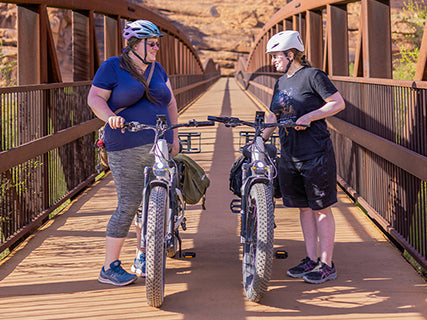Home to Lake Erie – the tenth largest lake in the world – the bustling city of Pittsburgh, Pennsylvania is the place to be for action-filled adventures and nature trips. No wonder so many residents and tourists are turning to Ebikes to explore more places and ride further than ever before.
In Pennsylvania, the laws stipulate what qualifies as an Ebike, the maximum allowed power output and top speed, and where you can ride them. These rules help riders stay safe on roads and trails, as well as courteous toward pedestrians, drivers, and other cyclists.
Read on to learn all you need to know about electric bike laws in Pennsylvania for 2025.
Ebike Laws in Pennsylvania
When discussing Ebike laws in Pennsylvania, it’s important to understand the current legislation. Below is a detailed breakdown of the legislation in its current form for 2025.
Overview of the 2025 Legislative Updates
Pennsylvania defines Ebikes as ‘pedal cycles with electric assist.’ For a vehicle to classify as an Ebike, it must:
- Weigh no more than 100 pounds
- Not exceed 20 miles per hour (mph) through motor power alone
- Have a motor that does not exceed 750 watts (w) in power output
- Have functional and operational pedals
Can You Ride Ebikes in Pennsylvania State Parks and Forests?
You can ride an Ebike on trails and roads that let you use a traditional pedal bike. This rule also extends to trails managed by the Department of Conservation and Natural Resources (DCNR).
When riding on a non-motorized, DCNR-managed trail, you cannot use the throttle. You may still be able to use the pedal assist mode, though. When in doubt, check with your state park or local government for clarity on the Ebike rules.
Areas that do not permit the use of Ebikes include:
- Natural areas
- Designated hiking trails (highlighted with orange or yellow)
- rails or roads specifically marked as closed to biking
What Class of Ebikes are Legal in Pennsylvania?
Unlike many parts of the United States, Pennsylvania does not have an Ebike classification system.
This means the rules apply to all Ebikes, regardless of their power output and assist system.
If the Ebike meets the criteria of a pedal cycle with electric assist, then the rules apply.
Where Can You Ride an Electric Bike in Pennsylvania?
In most cases, you can ride an Ebike on any road, trail, or pavement that permits traditional pedal bikes. If the path does not permit non-motorized Ebikes, then the same applies to motorized bikes.
Not sure if you’re allowed to ride an Ebike on a specific road or trail? Consult your state park or government authority for clarity.
How Old Do You Have to Be to Ride an Ebike in Pennsylvania?
To legally ride an Ebike in Pennsylvania, riders must be at least 16 years or older.
Do You Have to Wear a Helmet on an Ebike in Pennsylvania?
Riders under 12 years are required to wear a helmet when riding any bike. There are no helmet requirements for Ebike riders since you must be 16 years or older to ride one. Still, wearing a helmet is the most effective way to stay safe during an accident.
Do You Need a License to Ride an Ebike in Pennsylvania?
You do not need a special license to ride an Ebike in Pennsylvania. Ebikes are not subject to the same licensing requirements as mopeds or motorcycles.
Ride an Ebike with Confidence & Safety in Pennsylvania
Now that you understand the Ebike rules and regulations in Pennsylvania, you can ride safely and confidently.
Equipped with this knowledge, you can purchase an Ebike that meets your needs and complies with relevant state laws. In any case, an Ebike with a top speed of 20 mph will let you ride on most public trails and roads without restrictions.



Share:
New Electric Bike Laws 2025 for New York
Virginia Ebike Law: Everythng You Should Know